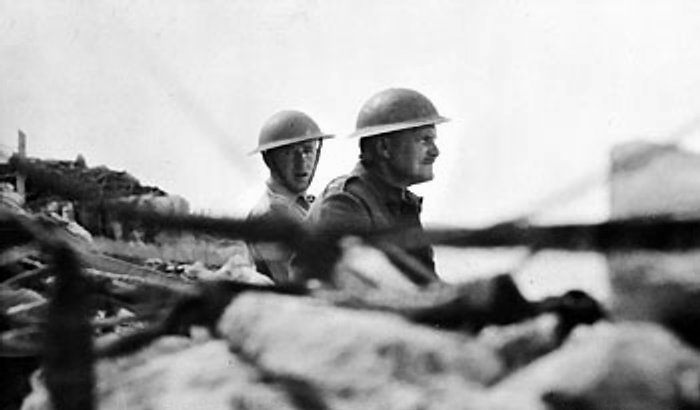It happened today - June 1, 2015
 On June 1, 1941, the German Blitzkrieg enjoyed its last great success on the Western front, completing the conquest of Greece by driving the British from Crete. But at too high a price.
On June 1, 1941, the German Blitzkrieg enjoyed its last great success on the Western front, completing the conquest of Greece by driving the British from Crete. But at too high a price.
From the end of the Sitzkrieg or “Phoney war” in April 1940, the Nazi war machine had enjoyed a series of stunning triumphs, over Denmark, Norway and France. It seemed that their dynamic tactical doctrines, new technology, and the aggressive spirit inherent in Hitler’s philosophy had given them the terrifying military capability to overwhelm any adversary so rapidly that there was no time to adapt, that the democracies had squandered the 1930s on pacifist dreams and internal problems and could not now recover.
To be sure, the British had somehow survived the Battle of Britain with substantial help from French, Polish, Czech, Canadian and other pilots. But the U-boats, another sinister new high-tech weapon swarming over the oceans, threatened to bring Britain down. And whenever the Allies took a stand, Stukas swooped down from on high, tanks crashed through the defences, and paratroops materialized over key command and control positions, including 20,000 landing across Crete over just a few days. The end seemed nigh.
It was bad. But not quite that bad. The Allies sustained heavy losses in the Crete campaign. But so did the Germans; in their first mass attack of the war their vaunted paratroops took such enormous casualties, including stiff resistance from the civilian population, that they would never again play a significant role in the war. And the Blitzkrieg itself, launched east against Hitler’s Bolshevik ally three weeks later, would founder in the bitter Russian winter though only after reaching the gates of Moscow, Leningrad and Stalingrad.
Now it can be argued that better decisions in the fall of 1941 might have let the Nazis break the USSR. World War Two remains a story of highly improbable victory against long odds following debacles like the fall of Greece.
In that story, the successful evacuation of some 20,000 British troops as Crete fell was not even the end of the beginning. That, as Churchill famously said, came a year later, when in the two battles of El Alamein the British, Indians, New Zealanders, Australians and others including Greeks stopped Rommel just short of the Suez Canal then drove him from Egypt. But the Axis conquest of Crete looked like one more in an unstoppable string of victories when in fact it was close to the high water mark of a doctrine that, dramatically successful in the short run, was soon to be defeated by more adaptable Western armies, navies and air forces.